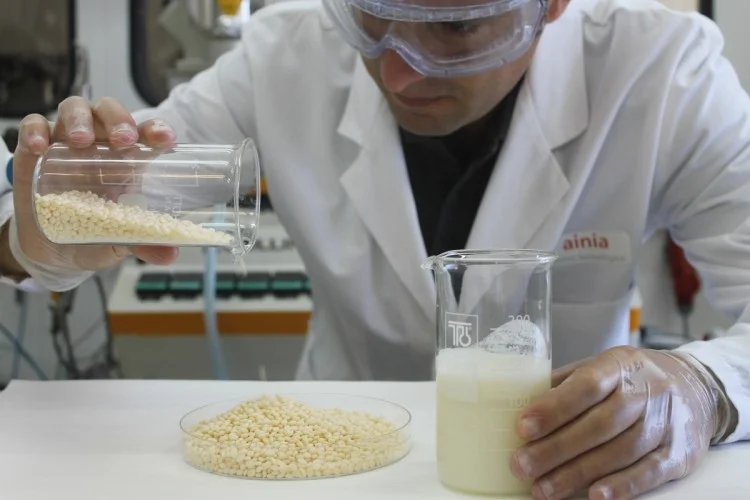In a groundbreaking leap for India’s plant-based food industry, veteran food technologist Dr. Chaitanya Hoskote has developed the country’s first Cheddar-style vegan cheese made entirely from sweet potato and carrot. The innovation is poised to reshape how Indian consumers, especially the lactose-intolerant and vegan population, view dairy alternatives..
At 71, Dr. Hoskote, a professor at DY Patil College in Navi Mumbai and a CFTRI Mysuru alumnus, has married traditional wisdom with modern science to craft this vibrant, nutrient-rich cheese. What began as a quest for affordable, indigenous solutions to Western-style plant-based cheese has now resulted in a globally unprecedented formula. “I didn’t want to replicate almond- or cashew-based cheese — they’re costly and elitist. India needs innovation grounded in its soil,” he said.
Unlike conventional plant-based cheeses, which rely heavily on nuts or imported ingredients, Hoskote’s cheese uses locally available sweet potatoes and carrots, rich in fiber, vitamins, and natural color. “Carrots gave me the Cheddar-like hue without artificial colorants,” he noted. But the journey wasn’t easy: “I failed dozens of times, but every failed batch brought me closer.”
This innovative cheese is part of the broader portfolio of Sattvedik LLP, the vegan foods company he co-founded with his former MSc students. The brand also produces vegan curd, buttermilk, and shrikhand, all based on enzymatically extracted plant milks from almonds, millets, and more. What sets Sattvedik apart is its near-zero-waste production — leftover filtrates are turned into cookies, spreads, and even beverages.
India’s plant-based dairy market is projected to touch ₹2,000 crore soon, growing at over 30% CAGR, according to CII data. Yet, Dr. Hoskote believes awareness is still limited. “Most people know paneer, not cheese — and even fewer know there’s vegan cheese made in India,” he said.
Sattvedik currently supplies B2B clients, including premium cafés like Barista, and is in talks to export to Southeast Asia, where demand for affordable vegan cheese is soaring. Imported plant-based cheese in Mumbai alone accounts for ₹8–10 crore annually. “If we match quality at half the price, India can lead this space,” he stated.
And the innovation doesn’t stop here. Dr. Hoskote is now developing a plant-based Mozzarella — one that could make vegan pizzas affordable for the masses. “No one should have to pay ₹300 for a pizza. I want to bring it down to ₹50,” he said, aiming to democratize clean, ethical food.
As veganism gains traction and lactose intolerance awareness spreads, Dr. Hoskote’s work is not just pioneering — it’s perfectly timed. With a mindset rooted in sustainability, affordability, and local innovation, his journey is a blueprint for future food innovation in India.
“Science doesn’t end with age,” he smiles. “If it’s helping the planet and people, it’s worth every effort.”


